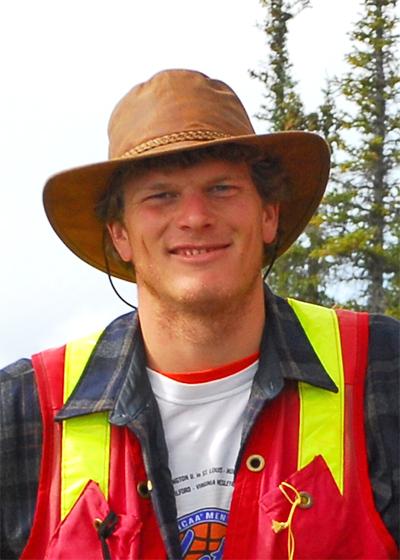- Title: Assistant Professor of Geosciences
- Department: Department of Geosciences
ABOUT
Q: What are your current research interests?
I am interested in when and how continents formed on Earth. Continents are such a fundamental part of the Earth, it really surprised me when I learned that we don’t have a firm idea when they formed on our planet! Our research at Penn State is helping to figure out when and how continental crust was formed.
Q: What is the most rewarding part of your work and what challenges you?
The unknown aspect of both research and teaching is what motivates me to keep pushing forward. I am really excited by things we as a society do not yet understand, and this also translates to the classroom. Teaching each new class and each individual student is a new and totally unique challenge, which keeps it exciting!
Q: What do you hope students take with them from your classes?
In the introductory classes, I hope students come away with an appreciation for the world around them. I hope they can understand why rivers look the way they do, how particular landscapes change through time, and why understanding how our planet functions is important for human society. In the upper level courses I hope students leave with a deep understanding of the basic concepts, and importantly develop skills that allow them to know where the big outstanding problems are – developing a critical yet enthusiastic mindset is the goal!
STUDENT RECRUITMENT
Q: Why should students choose a major in your field?
It’s simple – the geoscience field is amazing not only because it is the entire world around us, but skills in the geosciences are very employable. The geoscience employment sector is expected to grow faster than the background job growth in the US, and the complex visualization skills that a geoscience degree teaches you are valued by all sorts of industries, including data science and investment banking. With climate change and environmental issues becoming increasingly well accepted, geoscience skills will be in demand going forward.
Q: What are some of the career opportunities for students who a choose major in your field?
There are all kinds. The mining and mineral exploration workforce is growing due to our green energy needs, environmental consulting continues to be a major sector, and Earth Science policy is a rapidly growing field. Non-profits, national research laboratories, and insurance companies are all hiring geoscientists of various kinds.
Q: Do you offer opportunities for undergraduate students to participate in research? If yes, please describe briefly.
Absolutely, we have a state-of-the-art laboratory where we use lasers to measure the age and chemistry of mineral grains the size of a human hair! There are lots of exciting projects that we are working on, mainly focused on understanding the processes that occur to produce magma deep in the Earth, as well as the changes that occur in the deep roots of mountain belts. It’s all exciting stuff!
PERSONAL
Q: Did you go to college with the intention of getting the job you have now? If not, briefly explain how you came to the position you're in now at the University.
Yes and no. I always thought it would be interesting to be a professor, but there have been many times along the way I’ve almost left academia. There are so many cool jobs out there with interesting problems to solve! So far, being a professor at Penn State is a great life but that may change someday too.
Q: What is the most helpful advice you’ve received?
If you are going to do something, put your name on it. This was advice given to me by my father and it speaks to both being thoughtful and selective about what you put time into, but also once you decide to do something, do it to the best of your abilities. I’m not always great at following this, but it is useful to keep in mind!
Q: How do you like to spend your free time?
I dabble in lots of things, basketball, fly fishing, and mountain biking are constant hobbies. I also like to read novels and binge the latest good TV shows. I also run a podcast (PlanetGeo) in my spare time with my high school Earth Science teacher from Michigan. All fun stuff!
Q: If you could go back in time, what if anything would you do differently as a student?
I would worry less about chasing the grade and more about learning from the professor at little bit of a personal level. I was too worried about getting answers right and lost out on some opportunities to pick professors’ brains about the topic or discipline. Because of this I never spoke up in class, and I didn’t take advantage of that opportunity. Now being a professor, I love when students ask crazy, out-there questions or come up to me and express some deeper interest in the subject.


